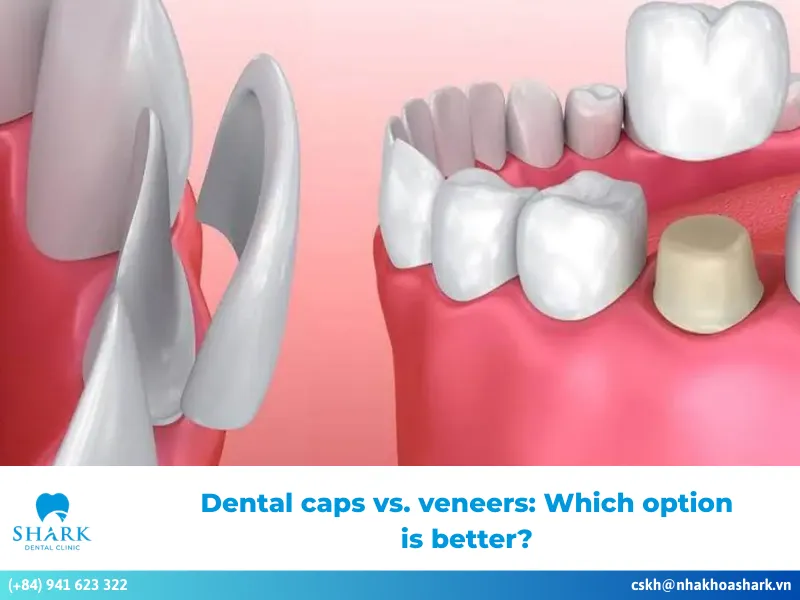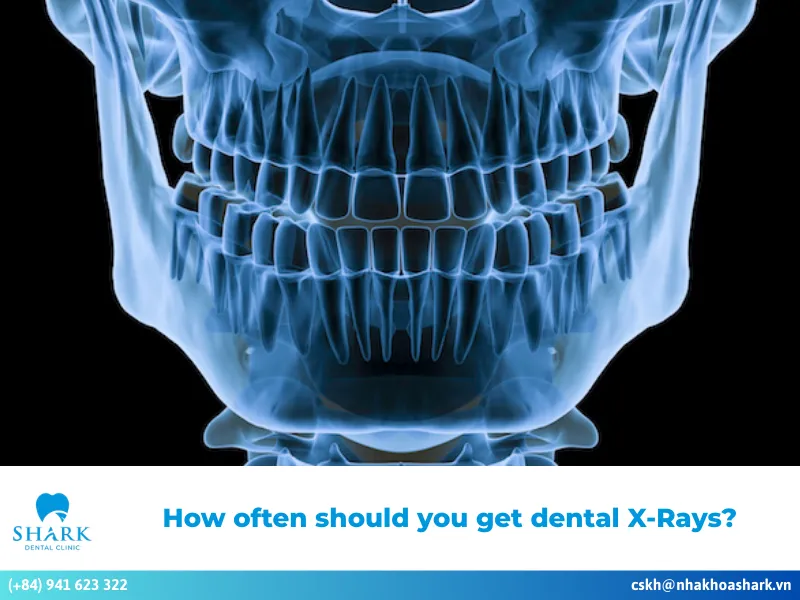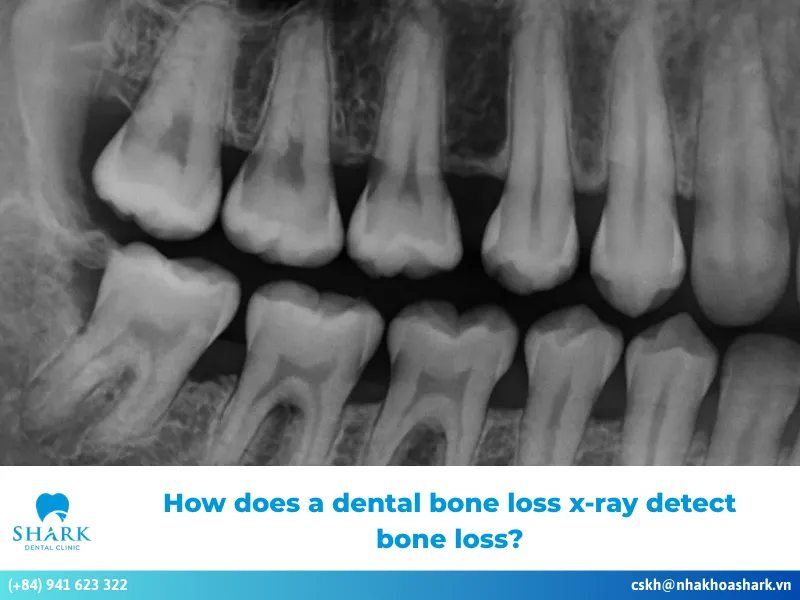Apart from aesthetics and cost, a common concern among patients is the lifespan of dental crowns after restoration. In the following article, Shark Dental Clinic provides answers to the question “how long do porcelain crowns last” and offers practical tips to help extend their lifespan.
Which crowns are the most durable?
At reputable porcelain crown in Vietnam, clients can choose between two main types of porcelain crowns: Metal-ceramic crowns and all-ceramic crowns. But which type is more durable? Additionally, for patients planning their finances, it is worth checking if you can use an HSA for dental crowns, as many Health Savings Accounts cover restorative procedures, making high-quality, durable options more accessible.
Metal-Ceramic crowns
Metal-ceramic crowns have an average lifespan of 5 to 7 years. This traditional type of crown consists of two main components: an inner framework made of either nickel-chromium (Ni-Cr) or cobalt-chromium (Co-Cr) alloy and a thin outer layer of white porcelain.
Due to the metal content in their structure, these crowns may oxidize over time when exposed to the acids in the oral environment. As a result, the gum margins around the crown can darken, durability decreases, and their overall lifespan remains average.
All-Ceramic crowns
All-ceramic crowns are made entirely of pure porcelain, both internally and externally. This type of crown boasts a long lifespan, lasting between 15 to 20 years, thanks to its high strength and heat resistance. All-ceramic crowns are not affected by acids in the mouth, exhibit excellent wear resistance, and do not create unsightly black gum lines.
These crowns can withstand forces ranging from 800 to 1600 MPa. All-ceramic material is highly regarded for its aesthetics, safety, and effectiveness in dental restoration, closely replicating the function and appearance of natural teeth.
In summary, all-ceramic crowns generally last longer than metal-ceramic crowns. However, each type has its advantages and disadvantages. Therefore, it’s essential to consult with a dentist to choose the most suitable dental material based on your needs and budget.
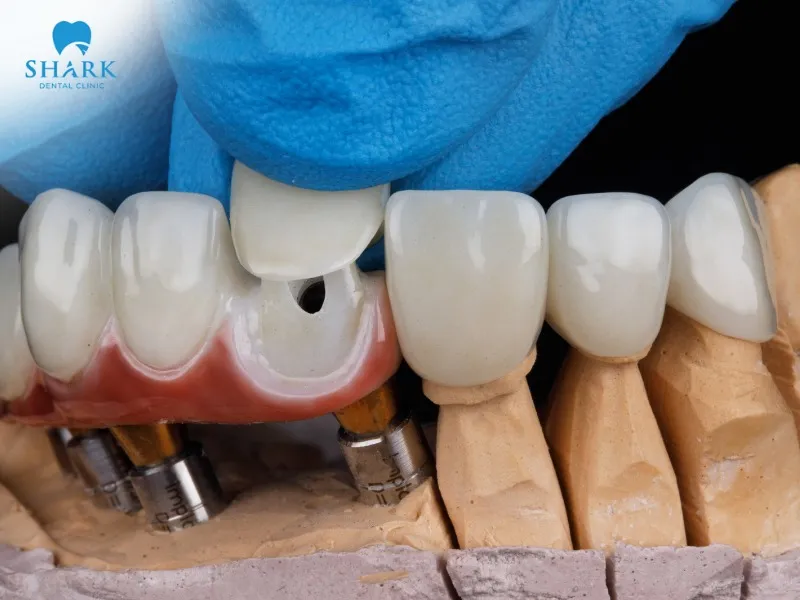
>>> See more: Can i use a Health Savings Account (HSA) for dental crowns?
How long do porcelain crowns last?
After cosmetic restoration, porcelain crowns can last between 5 to 20 years, depending on the type of crown used, the dental technique applied, and the patient’s oral care routine. To ensure your ceramic crowns remain durable and aesthetically pleasing over time, it’s important to research and select the right dental material and a reputable, high-quality clinic.
Factors affecting dental crown longevity
In reality, the lifespan of porcelain crowns after restoration is not fixed; it depends on several factors:
- Dental material: All-ceramic crowns typically have a longer lifespan than metal-ceramic crowns because of their monolithic structure and resistance to oxidation in the oral environment. This is one of the key factors that affects the durability and longevity of restorations. If possible, you should choose all-ceramic crowns.
- Oral health condition: Clients with healthy oral conditions tend to have smoother procedures and achieve better results than those with dental issues such as cavities, periodontitis, pulpitis, or gum inflammation. Overall oral health directly impacts the longevity of porcelain crowns after restoration.
- Oral care habits: After the procedure, the dentist will provide detailed instructions on proper oral hygiene and a scientifically balanced diet. Adhering to these guidelines will help ensure that your porcelain crowns last longer and maintain their durability.
Additionally, the longevity of porcelain dental crowns depends on the quality of the dental clinic where the procedure is performed. Clinics staffed by experienced and skilled dentists, equipped with modern machinery and reliable tools, will be able to ensure that the crowns are durable, effective, and aesthetically pleasing.

>>> See more: How long does a crown take to heal?
How can their durability be increased?
Here are some effective measures to help improve the durability of your porcelain crowns that you can consider:
- Choosing the right type of crown: As previously mentioned, all-ceramic crowns are highly regarded for their durability and longevity. Therefore, if you are looking for strong, long-lasting crowns, consider selecting all-ceramic material, especially for teeth with extensive decay or large fractures.
- Select a reputable dental clinic: The durability and lifespan of porcelain crowns are heavily influenced by the dentist’s skill and expertise. It is essential to choose a reputable dental clinic with a team of highly qualified, experienced professionals and modern technology.
- Treating oral health conditions: Before receiving porcelain crowns, any existing oral health issues—such as gingivitis, periodontitis, or pulpitis—should be thoroughly treated. This is crucial for ensuring effective restoration results and increasing the longevity of your dental crowns.
- Oral hygiene: After getting your all-ceramic restorations, it is important to follow your dentist’s instructions carefully. Maintain a proper oral care routine by brushing your teeth regularly and scheduling follow-up appointments. This will help keep your crowns in optimal condition and extend their lifespan.
In summary, to improve the durability of porcelain crowns after restoration, prioritize choosing all-ceramic crowns, selecting a reputable dental clinic, and adhering to professional oral hygiene guidelines.
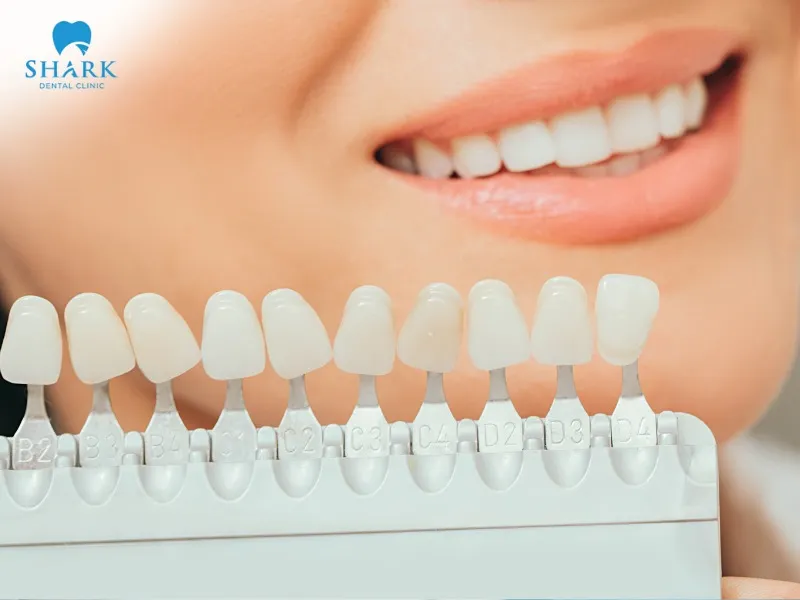
>>> See more: Can you get braces with a crown?
Dental crown maintenance and care
If you want to maintain strong, healthy teeth after restoration, it’s essential to follow these dental care measures:
- Brushing: Brush your teeth 2–3 times per day using a soft-bristled toothbrush. For more effective cleaning, brush vertically from the inside out.
- Using dental floss: Dental floss effectively removes leftover food debris without damaging the porcelain crowns. Therefore, avoid using wooden toothpicks, which can damage your gums and crowns. Use dental floss for daily cleaning instead!
- Mouth rinse: Rinse your mouth daily with a saline solution or a specialized mouthwash. Regular rinsing not only keeps your mouth clean but also eliminates bacteria, leaving your breath fresher and more pleasant.
- Tartar removal: Dentists recommend that patients have tartar removed every 3–6 months. This process eliminates plaque buildup and helps keep the oral cavity clean, protecting both the crowns and the surrounding gums.
- Diet: After receiving crowns, it’s best to consume soft, nutritious foods. Avoid excessively hot or cold dishes, artificially colored foods, carbonated drinks, and similar substances that can affect your crowns.
- Avoiding bad habits: Certain habits, such as smoking, teeth grinding, or using teeth to open bottle caps, can damage the dental crowns or cause them to loosen over time. It is strongly recommended to eliminate these habits to maintain crown stability.
In addition to the above measures, regular dental check-ups every 3–6 months at a trusted clinic are highly advised. Routine visits allow for early detection and treatment of any oral issues, ensuring your ceramic crowns function effectively and last longer.
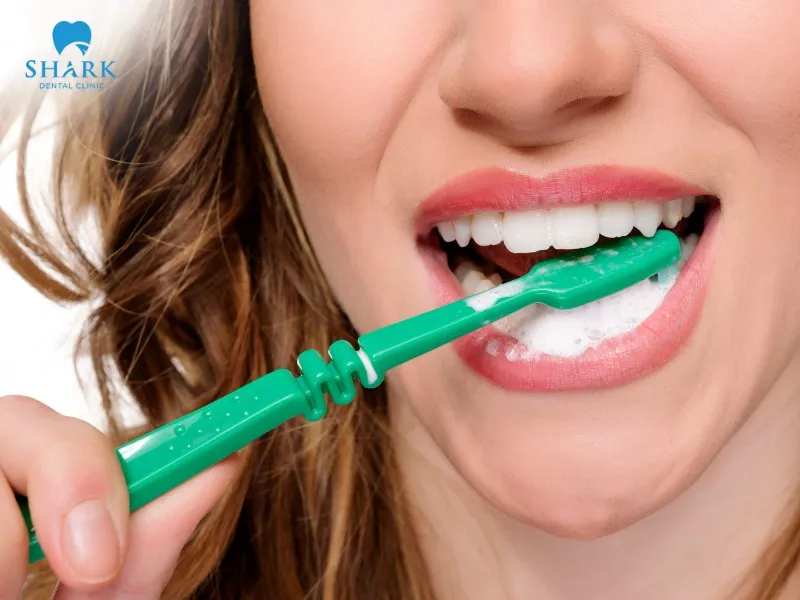
This article has provided comprehensive information on how long do porcelain crowns last, the factors that influence their durability, and how to care for them properly. We hope this helps you better understand the durability of dental crowns and equips you with the knowledge to confidently protect and maintain your smile.
>>> See more: Porcelain crown cost in Vietnam






